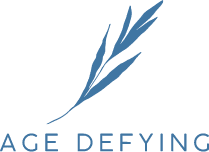Key Points
-
Although aging is inevitable, unhealthy aging is not.
-
Daily lifestyle choices profoundly impact how well — or poorly — you age over time.
-
Everyday lifestyle factors contributing significantly to aging include diet, exercise, sleep, social connections, stress, substance use, alcohol consumption, and smoking.
Although everyone ages, the process differs from one individual to the next. While many factors impact your aging process, lifestyle choices have particularly pronounced effects.
This article explores the impacts of diet, sleep habits, exercise routine, social connections, stress management, and substance use on aging. Making informed choices enhances overall well-being and slows down the aging process.
Diet, Nutrition, and the Aging Process
Diet plays a vital role in the aging process. Consuming nutrient-rich foods is essential for promoting healthy aging. Fresh fruits and vegetables, whole grains, and lean proteins provide the necessary vitamins, minerals, and antioxidants to support bodily functions and combat aging. On the other hand, processed foods and excessive sugar intake have detrimental effects on your health, accelerating the effects of aging on the body.
Nutrient-Rich Foods Promote Healthy Aging
To support healthy aging, include foods that are rich in nutrients. Dark leafy greens like kale and spinach are excellent sources of vitamins A, C, and K and antioxidants. Berries like blueberries and strawberries are packed with antioxidants that combat free radicals and protect against cell damage. Omega-3 fatty acids found in fatty fish and nuts provide anti-inflammatory benefits for the body, reducing the risk of age-related diseases.
Antioxidants help protect your cells from damage caused by free radicals. Consuming foods high in antioxidants can slow aging and reduce the risk of chronic diseases. Brightly colored fruits and vegetables such as tomatoes, oranges, and bell peppers are rich in antioxidants like vitamin C and beta-carotene.
Other sources of antioxidants include green tea, dark chocolate, and legumes. Incorporating these foods into your diet can enhance your body's natural defense mechanisms and promote healthy aging.
Optimizing Your Diet for Longevity
A balanced diet is vital for healthy aging. Include a variety of food groups in your meals, such as whole grains, fruits, vegetables, and lean proteins. Whole grains like brown rice, quinoa, and whole wheat bread provide fiber and essential nutrients. Fruits and vegetables should be consumed in their whole form or as fresh juices to ensure maximum nutrient intake.
Protein sources like fish, poultry, beans, and nuts provide the essential building blocks for your muscle tissue, keeping you healthy, mobile, and vital as you age. Healthy fats like avocados, olive oil, and nuts are also beneficial for heart health and reducing inflammation.
Sleep Habits
The quality and duration of sleep play a vital role in healthy aging. Poor sleep negatively impacts cognitive function, mood, and the immune system. Chronic sleep deprivation is associated with accelerated aging. Establishing healthy sleep habits and optimizing the amount and quality of sleep is necessary for overall well-being.
Getting enough high-quality sleep is vital for healthy aging. During sleep, your body repairs and regenerates cells, balances hormones, and consolidates memories. Lack of sleep or poor sleep quality can lead to cognitive decline, increased stress levels, and weakened immune function, all of which expedite aging.
Creating a Conducive Sleep Environment
Create a sleep-friendly environment to get your best sleep quality. Keep your bedroom cool, dark, and quiet to promote restful sleep. Investing in a high-quality mattress and comfortable bedding contributes to a good night's sleep. Limit electronic device use before bed because the blue light emitted by screens can interfere with sleep patterns.
A regular sleep schedule regulates your body's internal clock, promoting better sleep quality. Try to go to bed and wake up simultaneously every day, even on weekends. Before bed, engage in relaxation techniques such as deep breathing, meditation, or gentle stretching to calm your mind and prepare your body for sleep.
A Fascinating Study on Sleeping Pills and Alzheimer's Disease
A preliminary study in April 2023 at the Washington University School of Medicine in St. Louis investigated the insomnia medication BELSOMRA® (suvorexant) for its possible impact on two primary brain proteins associated with the development of Alzheimer's disease — amyloid and tau.
The research evidence suggests this common sleeping pill consistently reduces the level of these proteins in sleeping individuals. Further research is needed, but the results indicate a fascinating, unexpected application for sleeping medications known as "dual orexin receptor antagonists."
Exercise and Physical Activity
Regular physical activity is another crucial factor in healthy aging. Exercise improves cardiovascular health, boosts metabolism, maintains muscle mass, enhances cognitive function, and reduces the risk of age-related cognitive decline. To optimize the benefits of exercise, employ a routine to suit your individual needs and maintain consistency.
Engaging in aerobic activities such as brisk walking, jogging, or cycling benefits cardiovascular health. These activities increase heart rate and improve blood circulation, which delivers oxygen and essential nutrients to the body's tissues. Regular exercise also increases metabolism to maintain a healthy weight and prevent age-related weight gain.
Strength Training and Muscle Mass
Strength training exercises, such as lifting weights or using resistance bands, maintain and build muscle mass and strength as you age. They prevent muscle loss that can lead to frailty and loss of independence.
Strength training also improves bone density and reduces the risk of osteoporosis, a condition characterized by weakened bones.
Exercise has been shown to have positive effects on cognitive function. Regular physical activity stimulates the release of chemicals in the brain that promote the growth of new brain cells and improve memory and thinking skills. It also reduces the risk of age-related cognitive decline, including conditions like dementia and Alzheimer's disease.
Social Connections
Having strong social connections is vital for healthy aging. Social interactions contribute to overall well-being and combat loneliness, which negatively affects mental and physical health. Building and maintaining meaningful relationships is essential to promote healthy aging.
Close relationships and social connections reduce stress and enhance mental well-being by providing emotional support. Engaging in social activities and spending time with loved ones boosts your mood and increases feelings of happiness, positively impacting your overall quality of life.
Join Clubs or Organizations
Getting involved in group activities or joining clubs and organizations with shared interests is a great way to meet new people and establish social connections. This includes joining a book club, participating in a hobby group, or volunteering for community events. These activities provide opportunities for social engagement and developing new relationships.
Building a solid support network of friends, family, and community members is important for healthy aging. Cultivate relationships based on trust, mutual respect, and emotional support. When facing challenging times, don't hesitate to seek help and contact your support network for emotional support and guidance.
Stress Management
Effectively managing stress is also a must. Chronic stress has detrimental physical and mental health effects, leading to accelerated cellular aging. Understanding and implementing healthy coping mechanisms reduces stress levels and promotes overall well-being.
Chronic stress triggers the release of stress hormones, such as cortisol, which negatively affects various body systems. Prolonged exposure to stress weakens the immune system, increases the risk of chronic diseases, and contributes to mental health disorders like anxiety and depression.
Incorporate Relaxation Techniques Into Daily Routines
Relaxation techniques like deep breathing exercises, meditation, and yoga reduce stress levels and promote overall well-being. Engaging in these practices regularly calms the mind, improves focus, and lowers blood pressure to improve your physical and mental health.
Regular exercise is an effective stress management tool. Engaging in physical activities releases endorphins, known as "feel-good" hormones, which elevate mood and reduce stress. Pursuing hobbies and activities that bring joy and fulfillment is a healthy distraction from stressors and promotes a sense of well-being.
Substance Use
The effects of substance use on aging cannot be ignored. Alcohol, tobacco, and drug consumption significantly impact your overall health and expedite the aging process. Make informed choices and, if necessary, seek help for addiction to promote healthy aging.
Excessive alcohol consumption, tobacco use, and drug abuse cause several major health issues, including liver disease, cardiovascular problems, respiratory disorders, and increased risk of certain cancers. These substances also quicken aging, resulting in premature wrinkles, dull complexion, and a weakened immune system.
Understanding Safe Consumption Levels
When it comes to alcohol, moderation is key. Men should consume no more than two standard drinks per day, and women limit their intake to one traditional drink per day.
Smoking tobacco is known to be highly detrimental to health, so it's best to avoid it. The CDC warns, "Smoking harms nearly every organ of the body and affects a person's overall health." The agency adds, "Quitting smoking is one of the most important actions people can take to improve their health."
If you smoke, the best and most consistent advice is to seek professional guidance and support to kick the habit before it kicks you. Numerous resources, addiction recovery programs, support groups, and counseling services are available to aid in the journey toward recovery and promote healthy aging.
Age With Grace
Choices and actions have consequences — for good and for bad. Your daily life choices have a profound impact on the aging process. A healthy diet, regular physical activity, proper sleep habits, strong social connections, stress management, and responsible choices regarding substance use promote healthy aging and a more vibrant life as you age.
Remember, it's never too late to make positive changes. Start today for a healthier tomorrow.
Subscribe to Age Defying for more tips on living a healthier lifestyle and remaining active and vital as you age.





